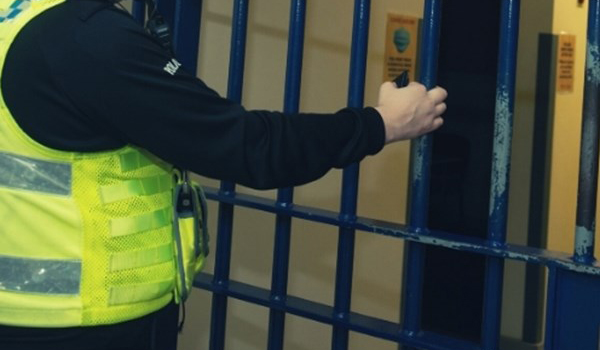Mental health a ‘consistent factor’ in deaths following police contact
Mental ill-health is a “consistent factor” among those who die in or following custody, according to the latest statistics from the Independent Office for Police Conduct (IOPC).
Of the 24 deaths in or following police custody in 2023/24 – an increase of one from the previous year, and the highest figure since 2006/07 – 19 had mental health concerns with one having been detained under the Mental Health Act.
In addition, of the 68 apparent suicides following police custody – an increase of 14 on the previous year and the highest figure since 2014/15 – 48 people had known mental health concerns and 31 had links to drugs and/or alcohol.
Just under half (27) of the 60 other deaths following contact with the police were also reported to have mental health concerns.
The figures were published in the IOPC’s annual ‘Deaths during or following police contact’ report for 2023/24.
Published for the 20th year, the statistics provide an official record setting out the number of such deaths, the circumstances in which they happen, and any underlying factors.
IOPC Director General Rachel Watson said: “Each and every death captured by these official statistics is a tragic loss for the families and loved ones involved and can have a profound impact on others.
“Past figures show mental ill-health to be a consistent factor among those who die in or following custody, but it features even more starkly this year, in 19 of the 24 deaths.
“Furthermore, in 48 of the 68 apparent suicides, and in just under half of the 60 other deaths we investigated, mental health was identified as a relevant factor.
“In 21 of the deaths in or following custody the deceased was known to have a link to alcohol and/or drugs. Restraint was used in 14 of the deaths in or following custody cases, although did not necessarily contribute to these deaths.
“Not all deaths where police have contact with an individual will be preventable. However, it is disappointing to see increases this year among deaths in or following custody, road traffic fatalities and post-custody apparent suicides. It is important that any learning from investigations is acted on and fed into improvements to help police officers better manage risk.”
She added: “Police have numerous interactions with the public each year in a wide array of circumstances and can often be the first responders to people in medical or mental health crisis.
We welcome the roll out of the Right Care Right Person initiative across police forces, which aims to ensure that vulnerable people receive the most appropriate service from the best suited agency.
“We will continue to monitor the scheme’s development as local arrangements between police forces and health partners bed in.”
The Director General said the “prevalence of restraint” underlines the need for clear guidance that helps officers to de-escalate where possible and only use force where necessary.
“We welcome the new scenario-based public and personal safety training developed by the College of Policing, and the recent publication of the first set of national standards in this key area of police training,” said Ms Watson.
“Training needs to ensure officers understand the dangers associated with restraint and can effectively monitor people who are restrained to swiftly identify where medical intervention is needed.
“The police service cannot act alone and ongoing system-wide collaboration across agencies through the Ministerial Board on Deaths in Custody, of which we are part, is vital for the common aim of a sustained reduction in deaths.”
Association of Police and Crime Commissioners (APCC) national lead for custody, Kate Green, said: “It is extremely concerning to see the number of deaths following or during police contact is continuing to rise.
“We must remember that behind each statistic is a personal tragedy, and on behalf of my colleagues at the APCC, I want to share my condolences with all the families affected and make a commitment to them that we will continue to prioritise making police custody a safe place for all.
“As a national lead for custody, I would like to reassure the public that police and crime commissioners (PCCs) will continue to scrutinise chief constables and work with local communities to deliver independent custody visiting checks.
“IOPC data indicates that a significant number of those who died in police custody had mental health concerns, and/or drug and alcohol issues.
“Although a considerable amount of training and resource is invested in police custody officers and staff to identify vulnerability, there is still more to be done. This is why as a national custody lead, I am working with colleagues to support and inform their local scrutiny of custody.
“With the support of the Independent Advisory Panel for Deaths in Custody, the APCC produced guidance on preventing deaths in custody which provides evidence-based practice, including practical steps to deliver specialist support for detainees within custody.
“The Association has also published guidance on the Right Care, Right Person approach, which seeks to divert vulnerable people towards appropriate care, including mental health professionals, and reduce the use of custody as a place of safety.”
The IOPC Director General said its Learning the Lessons publications on mental health and custody promote improvements in policing by sharing good practice and encouraging reflective thinking.
“On tackling suicides, we are involved in a cross-sector working group set up by the Independent Advisory Panel on deaths in custody,” said Ms Watson. “It will be important for the group’s work on preventative measures to be implemented, such as strengthening police guidance and improving multi-agency support for vulnerable individuals upon release from custody.
“As the new IOPC Director General, I want us to be effective, fair, and independent in our work investigating deaths. I am determined we play our part in holding police accountable where appropriate, while helping them learn from cases.”


